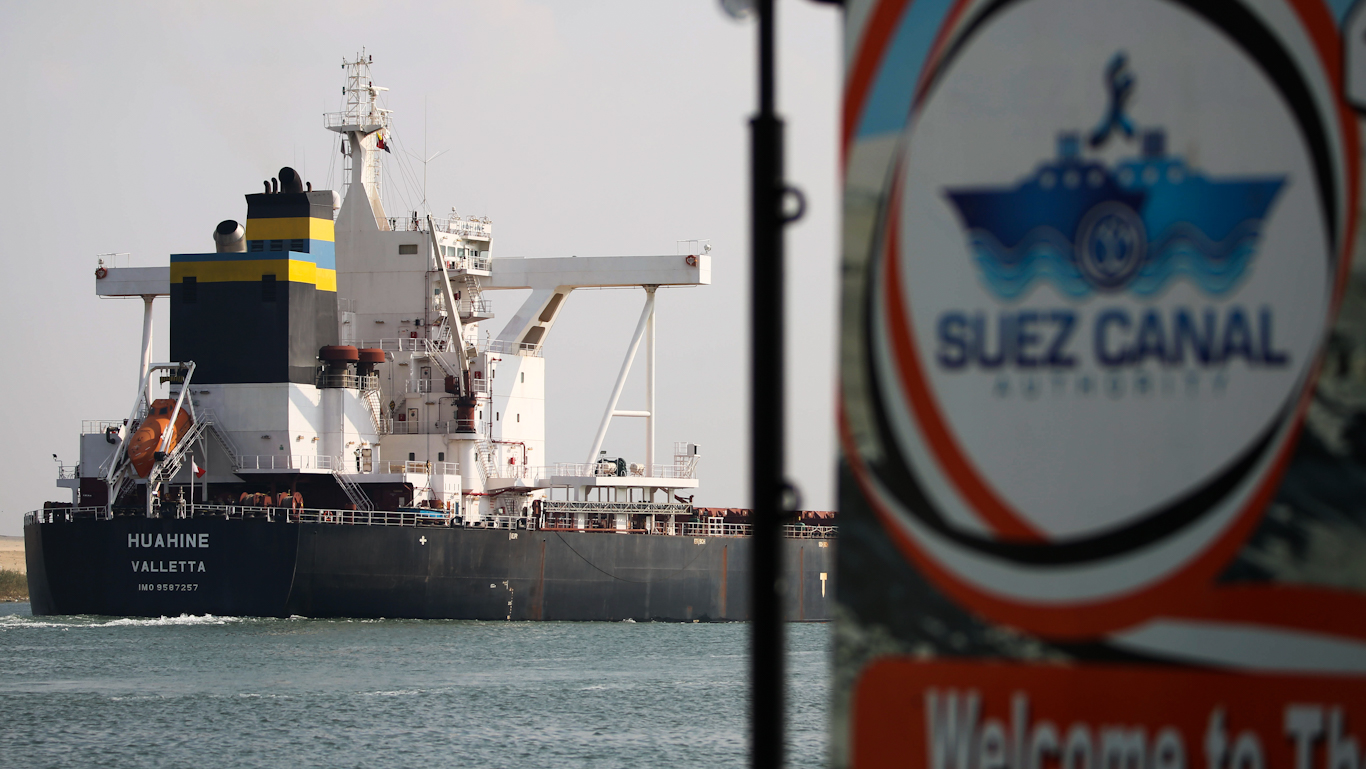President Donald Trump’s call to permit the free passage of American ships through Egypt’s Suez Canal has sparked public outrage across a nation already in steep economic decline. While Washington appears to feel entitled to Cairo’s trade route, U.S. policies have long contributed to Egypt’s financial crisis.
Earlier this week, Trump announced immediate action was being taken to allow U.S. ships to transit through both the Panama and Suez canals free of charge. While the move will likely deal an economic blow to Panama City, Cairo is already teetering on the brink.
Back in March, U.S. Middle East envoy Steve Witkoff warned that Egyptian President Abdel Fattah el-Sissi’s government was on the verge of economic collapse. This admission underscores that Washington is aware of Egypt’s dire financial situation. Yet leaked details of a call between Trump and Sissi indicate the U.S. is now pressuring Cairo to take military action in Yemen and to open the Suez Canal to American shipping free of charge.
Egypt is the second-largest recipient of U.S. aid—behind only Israel—receiving about $1.5 billion annually. This aid arrangement began after Egypt agreed to normalize relations with Israel in 1979. These annual handouts have kept Cairo within Washington’s sphere of influence, incentivizing the purchase of Western weapons systems and ongoing collaboration with Israel on a range of regional issues.
However, Egypt’s economy has been in sharp decline for years. Rather than pursue reforms demanded by its citizens, the government has sought foreign investment—mainly from Gulf Arab states—for a series of mega-projects. The Israeli assault on Gaza since October 2023 has only compounded Egypt’s economic woes.
When Yemen’s Ansar Allah launched a blockade on Israeli-linked shipping through the Red Sea in November 2023, the initial impact on Suez Canal traffic was limited. But in December, after U.S. and British forces began striking Yemen, the blockade was expanded to include American and British vessels. As a result, approximately 75% of U.S. ships began avoiding the Suez Canal, opting instead for the longer route around Africa.
By mid-March, President Sissi announced that the canal—vital to Egypt’s economy—was losing $800 million in monthly revenue due to the Red Sea blockade.
In his final speech as secretary of state, Antony Blinken warned that Egypt’s normalization treaty with Israel could unravel. Speaking at an Atlantic Council event, he emphasized the potential fallout if a two-state solution between Israelis and Palestinians failed, urging the incoming Trump administration to consider the consequences of a collapsed normalization agreement.
News of Trump’s demands has sparked widespread anger in Egypt, where citizens fear the economic consequences of offering U.S. ships free passage. Further concerns stem from the potential for Egypt to be dragged into military action in Yemen—an expensive and destabilizing move that could further disrupt canal traffic and stretch the country’s armed forces.
In January, the Trump administration temporarily froze all foreign aid—with the exception of Israel. Then, in March, Washington reportedly sought to use that aid as leverage to pressure Cairo into accepting the mass displacement of Palestinians from Gaza.
Meanwhile, Israel and several Washington-based think tanks have accused Egypt of violating its 1979 normalization agreement by expanding military operations in the Sinai Peninsula. Tel Aviv officials have even threatened military action against Egypt, using the Sinai build-up as a pretext—even as Israel itself violates the agreement through its illegal occupation of the Philadelphi Corridor in southern Gaza.
In late April, the Heritage Foundation—one of the most influential think tanks tied to the Trump administration—published a commentary criticizing Egypt’s refusal to acquiesce to U.S. demands. The piece argued that continued pressure on Sissi could ultimately advance U.S. goals in Gaza and across the region.
If the United States continues to leverage foreign aid to force Egypt into facilitating ethnic cleansing in Gaza, offering free transit through the Suez Canal, and launching military operations in Yemen, the result could be catastrophic. Egypt’s government is already walking a tightrope—and further pressure may push it into collapse.
Feature photo | A cargo ship sails through the town of Ismailia, Egypt, Ayman Aref | AP
Robert Inlakesh is a political analyst, journalist and documentary filmmaker currently based in London, UK. He has reported from and lived in the occupied Palestinian territories and hosts the show ‘Palestine Files’. Director of ‘Steal of the Century: Trump’s Palestine-Israel Catastrophe’. Follow him on Twitter @falasteen47


